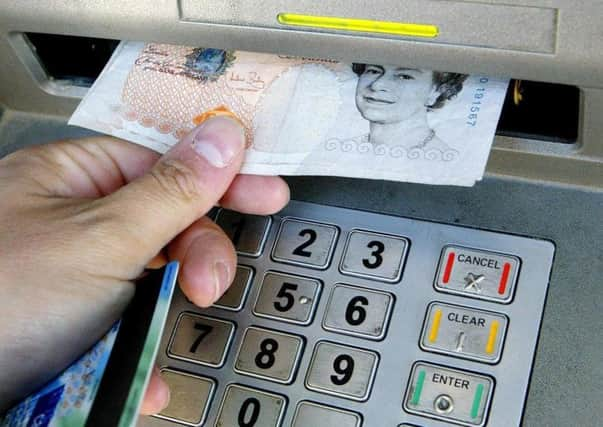Teaching children the importance of managing money


NO matter how much pocket money you give your child, they’ll always tell you their friends get more. Which, it turns out, might actually be true.
Recent research has found that while children get an average of £31.64 pocket money per month (just over £7 a week), some generous parents then spend another £108.22 per child per month on “extras”, such as mobile phone credit, make-up, music downloads, sports clubs, extra-curricular lessons and other little treats.
Advertisement
Hide AdAdvertisement
Hide AdThe research by the Nationwide Building Society found that the extras mean some children are getting 342 per cent more cash on top of their monthly pocket money.
Interestingly, it also revealed that parents aged from 35 to 44 are much less generous than their younger counterparts. Those aged 25-34 are likely to spend an extra £21.72 on pocket money a month compared with older parents, and when “out of pocket money” extras are factored in, this difference rises to £67.14.
Psychologist Dr David Lewis, author of How to Be a Gifted Parent, explains: “The main reason for this apparent generosity gap between younger and older parents is most likely to be the differences in their own childhood experiences and expectations.
“Those aged 35 and over had mums and dads whose own parents grew up during the years of post-Second World War austerity, when children were raised with much greater awareness of the value of money.”
Advertisement
Hide AdAdvertisement
Hide AdHe suggests that younger parents, closer in age to their children, may have a better understanding of the social and cultural pressures kids experience nowadays, and may also be more concerned about appearing to be a “friend” to their children, not just a parent.
“It’s not that older parents are less generous than younger ones,” he points out, “but merely that their own childhood expectations of what the bank of mum and dad should provide are different. Often with age and maturity comes greater confidence in your own parenting skills, and less willingness to be taken on a guilt trip by demanding youngsters – they recognise that there’s a world of difference between being a good parent and an easy touch.”
Whatever amount of pocket money you give to your children though, handing something over is important in helping kids learn financial lessons for life.
Tracey Bleakley, chief executive of the Personal Finance Education Group (pfeg), points out that it’s up to parents how much pocket money their children should receive, and from what age, and this will often be determined by how much they can afford.
Advertisement
Hide AdAdvertisement
Hide Ad“But either way, pocket money can be a terrific way to help children learn about money and personal finance from an early age,” she says.
“The good news is that, in many ways, the amount you give really isn’t that important – the key is to use pocket money as a tool for financial education, rather than giving it for its own sake.”
She suggests a good way of teaching children the value of money is to link an allowance to completed chores around the home. “If you do this, it’s important to be consistent – so if a chore goes unfinished or isn’t done properly, I’m afraid they shouldn’t get the whole amount.”
Bleakley believes this can be used as an opportunity to help children develop good financial habits. “You can do this by setting savings challenges. If they really want something special, ask them to work out how long they’ll need to save their pocket money to be able to pay for it.
Advertisement
Hide AdAdvertisement
Hide Ad“You can then encourage them to get saving – even if only for part of the whole amount. This is a great way of developing a lifelong savings habit, and also an ideal time to introduce the concept of the difference between ‘need’ and ‘want’.”
From next September, all maintained secondary schools in England will actually teach financial education as part of the National Curriculum for the first time – schools in the rest of the UK already do this.
While this is clearly a positive step, Bleakley stresses that parents also have a key role to play in financial education.
“To be most effective, learning about money should be a bit like learning to read. We do that at school, but it has to be reinforced at home,” she says, pointing out that it’s crucial to start early, while children are of primary school age.
“Using pocket money as a financial education tool at home is a great way for parents to set their young children off on the right foot when it comes to managing their money.”